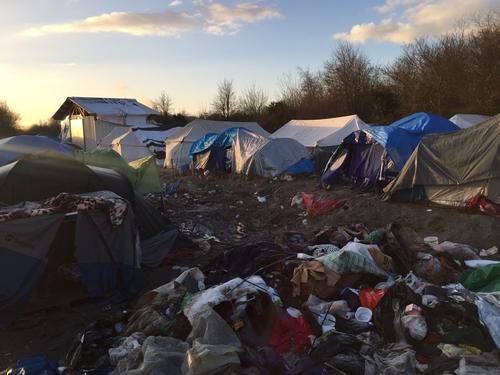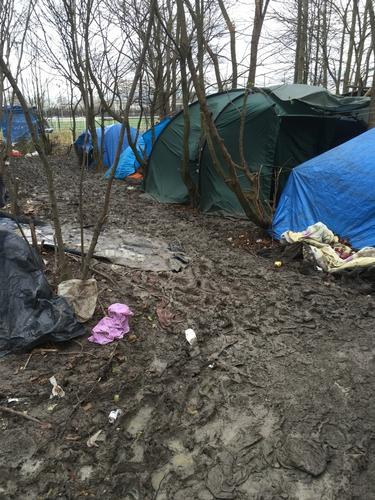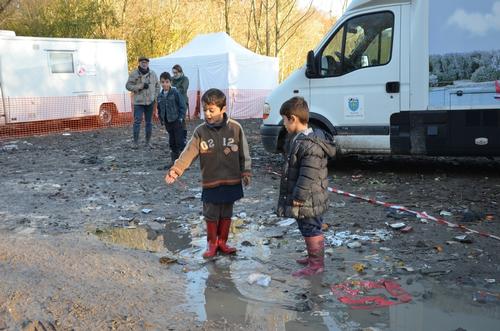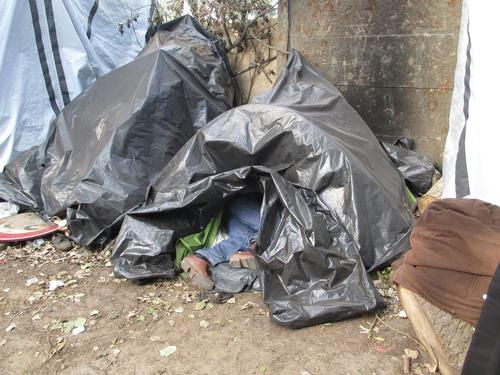Médecins Sans Frontières (MSF) began work today on a new site for refugees in Grande-Synthe, France. “There are now more than 2,500 people in Grande Synthe sleeping rough in the mud, wet and cold and in appalling, unsanitary conditions. They must be offered shelter and a more acceptable living environment,” says André Jincq, deputy programme manager at MSF.
Entirely funded by MSF and costing the state nothing, this is not a government-owned camp. The work will take about a month to complete, during which 500 winterised tents (each accommodating five people), hot-water showers and sufficient latrines will be installed.
“We worked with Grande-Synthe town council to get this programme started,” explains Jincq. The mayor turned to MSF because the council’s requests to the government for help were left unanswered and the number of new arrivals was increasing fast. While there were 800 people sleeping rough at the site in Grande-Synthe at the beginning of October, their number has risen to 2,500 in recent weeks. Most are Kurds waiting to cross to the U.K. and among them are families and 250 children – some very young.
Despite the urgency of the situation, it took time to get started with the authorities advancing technical constraints, such as the risk of fire. Ironically, this risk is all too present at the current site where the only way for the refugees to keep warm is with wood fires and makeshift heaters. MSF provides medical consultations at the camp and has treated refugees suffering from burn injuries. However, at long last, the technical aspects were finally resolved to the satisfaction of all those concerned during a meeting on 11 January attended by the sub-prefect, MSF and Grande-Synthe council.
Once the camp is installed, the refugees will be accommodated on a voluntary basis and will be free to come and go as they please. “We view this as essential. We’re not setting up a camp to shut the refugees in but to offer them a space to help them get through the winter in more decent and humane conditions,” insists Jincq.
MSF will continue to provide medical care.






